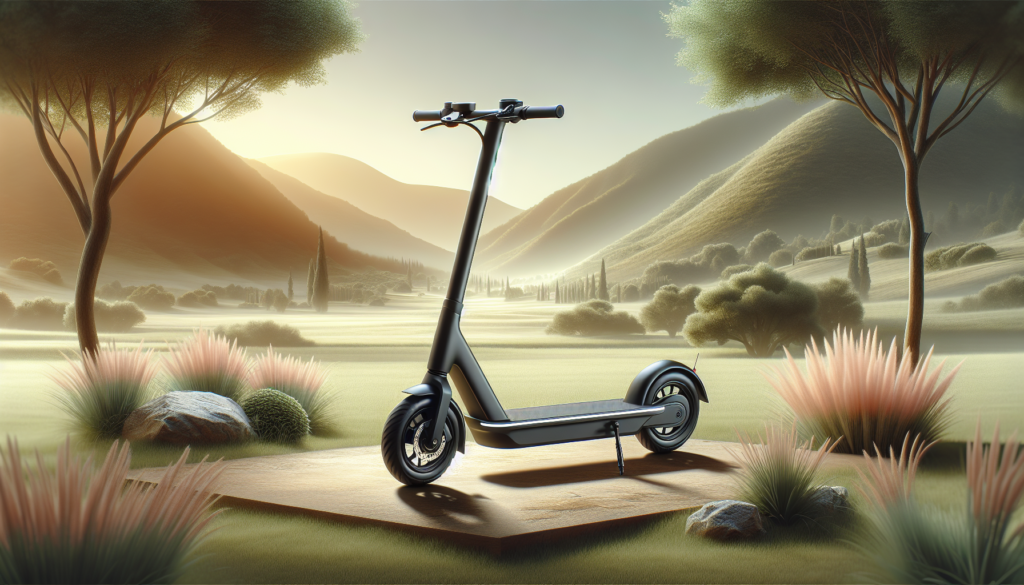
As the popularity of escooters continues to soar in Malaysia, it’s essential for riders and enthusiasts alike to understand the country’s legal framework surrounding these convenient and environmentally-friendly vehicles. With many cities now implementing designated e-scooter lanes and rental services popping up left and right, it’s clear that e-scooters are here to stay. However, with great freedom comes great responsibility – and that includes knowing your rights and obligations as an e-scooter user in Malaysia.
Understanding E-scooter Regulations in Malaysia: An Overview
To stay up-to-date with the latest developments in Malaysia’s e-scooter regulations, we recommend checking with local authorities and industry organizations. Many e-scooter manufacturers also provide resources and support for riders to ensure they’re compliant with the law. By taking the time to understand the regulations and guidelines, riders can enjoy a safe and enjoyable experience on their e-scooters while contributing to a responsible and sustainable mode of transportation in Malaysia.
Types of E-scooters and Their Specific Laws: E-Mopeds, E-Scooters, and More
As the popularity of e-scooters continues to rise in Malaysia, it’s essential to understand the legal framework that governs their use. In this section, we’ll delve into the types of e-scooters and their specific laws, helping you navigate the complexities of Malaysia’s legal landscape for e-scooters. E-mopeds, also known as electric mopeds or e-mopeds, are a type of two-wheeled electric vehicle that combines the benefits of an e-scooter with a moped.
In Malaysia, e-mopeds are subject to the same laws and regulations as motorcycles, including the requirement for a motorcycle license. On the other hand, e-scooters are categorized under the ‘small vehicles’ category in Malaysia, which means they are exempt from the need for a motorcycle license. However, riders must still follow traffic rules and regulations, such as wearing helmets and using designated bike lanes. It’s also worth noting that some local authorities may have specific by-laws or restrictions on e-scooters, so it’s crucial to familiarize yourself with these regulations before riding.
Riding Etiquette and Safety Precautions: Staying Alert on Malaysian Roads
Another important aspect of riding etiquette is respecting the rights of other road users. E-scooter riders should be aware of their position in traffic and avoid obstructing pedestrian paths or cycling lanes. It is also essential to yield to other vehicles, especially at intersections, and to use hand signals when turning or changing lanes. By following these simple rules, e-scooter riders can help create a harmonious and safe environment on Malaysian roads. Additionally, riders should be aware of the local laws and regulations regarding e-scooters, such as helmet requirements and parking restrictions, to avoid fines and penalties.
E-scooter Parking and Storage Regulations: Where to Park and How to Store

As you navigate the streets of Malaysia on your escooter, it’s essential to understand the regulations surrounding parking and storage. According to the Malaysian government’s guidelines, escooters are considered vehicles and are subject to the same parking and storage rules as motorcycles. This means that you’ll need to park your escooter in a designated parking area or zone, which is typically marked with signs indicating ‘motorcycle parking.’ Failure to comply may result in fines or penalties.
Additionally, it’s crucial to ensure that your escooter is properly secured when not in use, as theft can be a significant concern in crowded cities like Kuala Lumpur or Penang. Always check with local authorities for specific parking and storage regulations in your area, as these may vary depending on the location and time of day.
Insurance Requirements for Escooters in Malaysia: Protecting Yourself and Others
In Malaysia, insurance requirements for escooters are a crucial aspect of the legal framework. As an escooter rider, it’s essential to understand that you’re not only protecting yourself but also others on the road. The Malaysian government has implemented regulations to ensure that escooter riders have adequate coverage in case of accidents or damages. To register your escooter, you’ll need to purchase a mandatory insurance policy from an approved insurer. This policy must cover third-party liability, which means it will provide compensation to other parties involved in an accident, including pedestrians and motorists.
Additionally, some escooters may require a Certificate of Fitness (CF) or a Road Tax, depending on the model and specifications. It’s essential to check with the relevant authorities for specific requirements and to ensure that your escooter meets the necessary standards. As you navigate Malaysia’s legal landscape, remember that responsible riding practices, combined with proper insurance coverage, will help keep you safe and protected on the roads.
Enforcement of Escooter Laws in Malaysia: What to Expect from Authorities

As a responsible rider, it’s essential to understand how the authorities in Malaysia enforce escooter laws. The Malaysian government has implemented regulations to ensure public safety and order on roads and paths shared with motorized vehicles. According to Section 79 of the Malaysian Road Traffic Act 1957, riders are required to wear helmets at all times when riding an escooter. Furthermore, it’s compulsory for riders to have a valid driving license and register their escooters with the relevant authorities. Failure to comply with these regulations can result in fines and penalties, up to RM500 for not wearing a helmet or not having a valid license.
Authorities, such as the Malaysian Police Force and local councils, are responsible for enforcing these laws and monitoring escooter usage. They have the power to issue summonses, impose fines, and even confiscate non-compliant escooters.
Future Developments in Escooter Regulations: Staying Ahead of the Curve
As Malaysia continues to evolve its legal framework for escooters, it’s essential for riders and manufacturers to stay informed about future developments. The government has been actively working on updating regulations to ensure public safety while also promoting the growth of the escooter industry. One potential development is the implementation of standardized safety features for all escooters sold in Malaysia. This could include mandatory equipment such as headlight, taillight, and horn, as well as requirements for tire quality and braking system performance.
Additionally, there may be updates to existing laws governing escooter usage on public roads, including possible restrictions on riding in certain areas or during specific times of day. To stay ahead of the curve, riders should keep an eye on official announcements from the government and relevant authorities, as well as engage with local escooter communities to share knowledge and best practices. By being proactive and informed, Malaysia’s escooter community can continue to thrive while maintaining a strong commitment to safety and responsibility.
Putting the Pieces Together: Understanding Your Rights and Responsibilities as an Escooter Rider in Malaysia
As we have navigated through the complexities of Malaysia’s legal framework for escooters, it is essential to remember that your safety on the road is paramount. Whether you are a seasoned rider or a newcomer to the world of escooters, understanding your rights and responsibilities is crucial in ensuring a smooth and enjoyable experience. From licensing requirements to insurance policies, and from traffic regulations to public perception, this comprehensive guide has provided you with a thorough understanding of what you need to know as an escooter rider in Malaysia.
With this knowledge, you can now confidently take to the roads and enjoy the freedom and convenience that escooters at Ekolife Malaysia have to offer. Remember, always ride responsibly and follow the rules of the road.

I’ve been riding e-scooters occasionally in Malaysia, but I never knew about all these regulations until now. Thanks for the detailed overview!
Hi Elara, it’s great to hear that you found our guide informative! As an e-scooter enthusiast, it’s essential to be aware of the regulations and laws in place to ensure a safe and enjoyable ride. If you have any questions or concerns regarding the guide, please don’t hesitate to reach out to us at [email protected] or call us at +60 3-7890 3042. We’re always here to help.
As an e-scooter enthusiast, I’m glad this blog highlights the importance of following traffic rules and riding safely. We riders shouldn’t be a nuisance to the public!
Thank you for sharing your thoughts, Kavin! We completely agree that following traffic rules and riding safely is crucial for both e-scooter riders and the public. At Eko Life Malaysia, we strive to promote responsible and sustainable e-scooter usage in Malaysia. If you have any questions or concerns about our products or services, feel free to contact us at [email protected] or +60 3-7890 3042.
I’ve been caught a few times by CPITB for parking my e-scooters in non-designated areas. Glad this blog mentions about parking regulations. Now I know what to expect from now on.
Dear Nadia Amir, sorry to hear that you’ve had a few encounters with CPITB. It’s great that this blog has helped you understand the parking regulations in Malaysia. As a reminder, please note that CPITB takes e-scooter parking violations seriously. If you’re unsure about where to park your e-scooter, you can always check the designated parking areas near you. We at Eko Life Malaysia hope this guide has been helpful, and please do reach out to us at [email protected] or +60 3-7890 3042 if you have any more questions or concerns. Stay safe on the road!